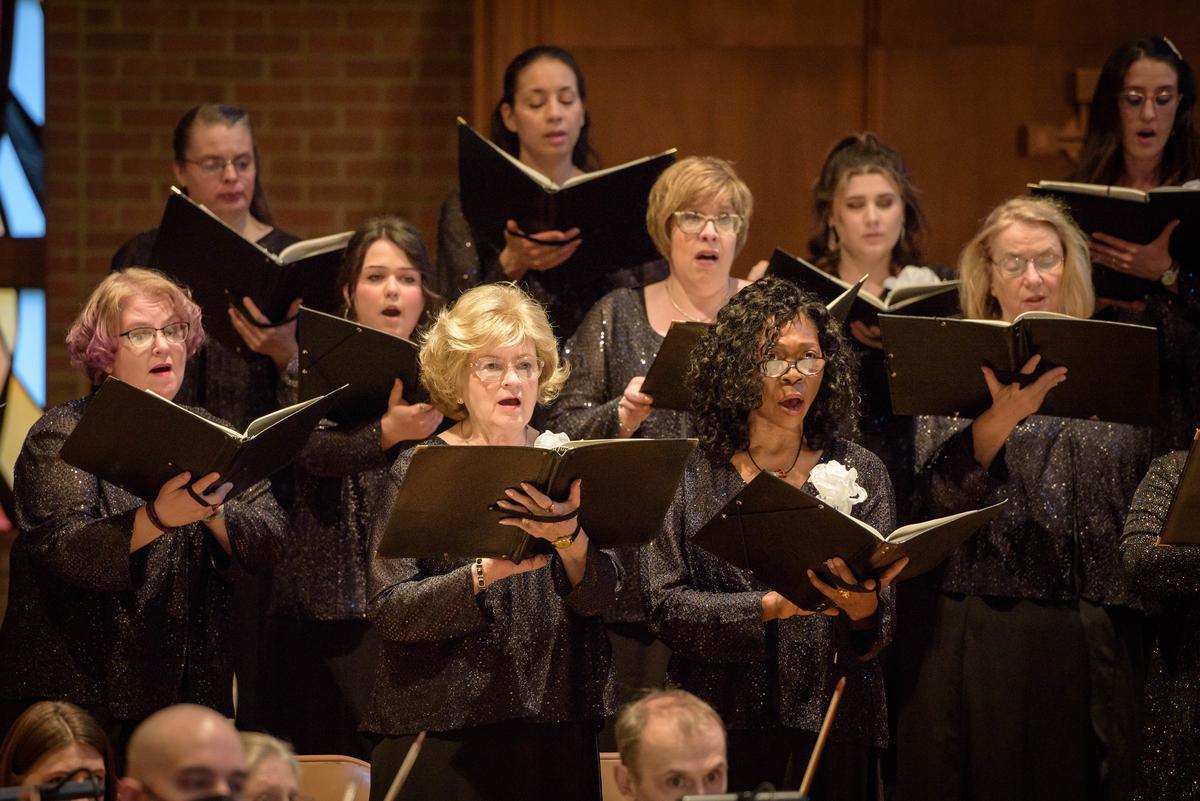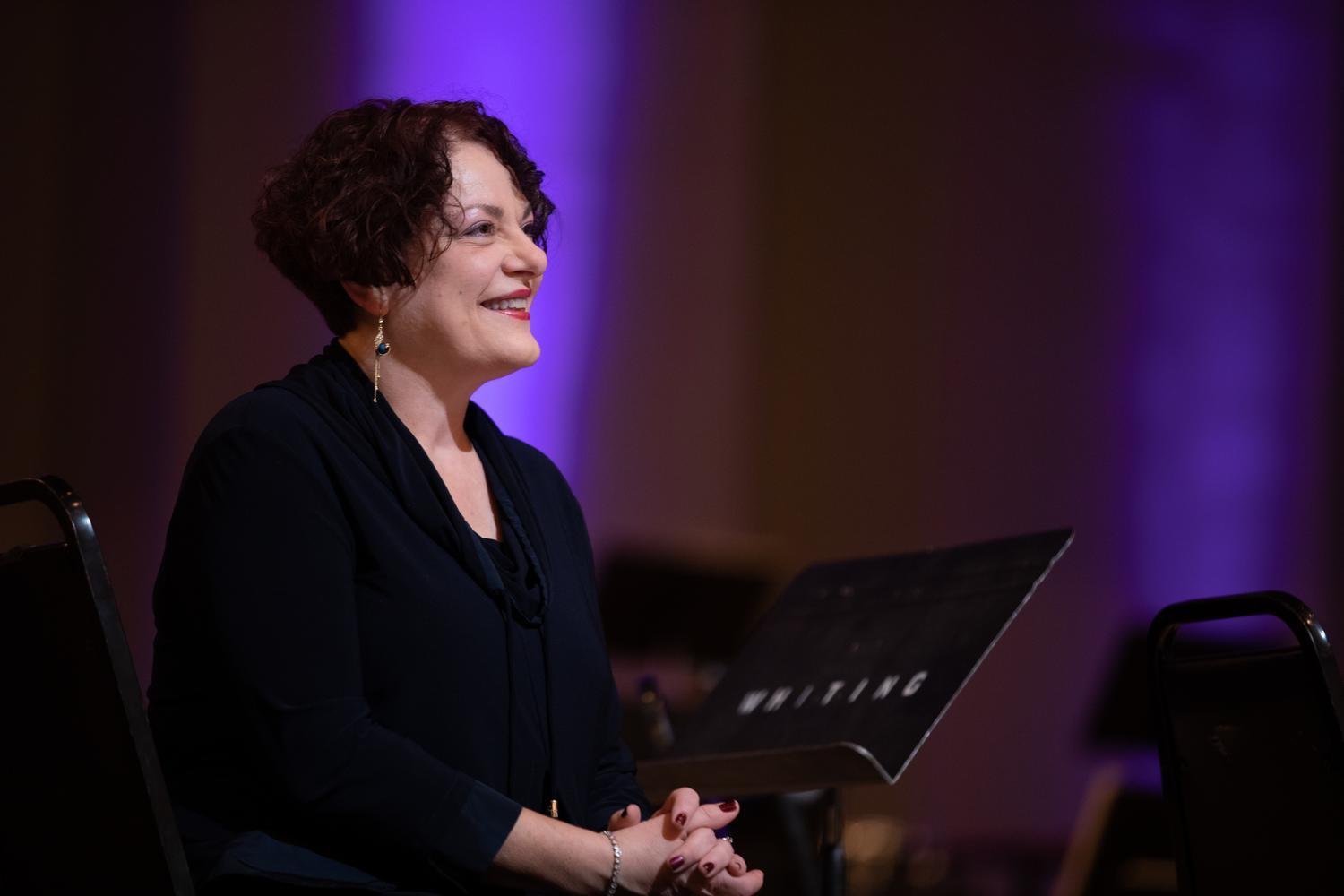Collaboration and Community Through Mozart’s Requiem

Mozart’s Requiem is shrouded in mystery. It was commissioned in 1791 by Count Franz von Walsegg to memorialize the passing of his wife – for those who may be unfamiliar, a “requiem” is a mass for the dead. Mozart died before he could finish the piece, though there are varying accounts of how it was completed and who finished writing it.
“One can imagine how he might have worked feverishly, as though racing against time, possibly to the detriment of his health,” said Nicholas Music, a tenor soloist who will be featured in the Requiem performance with the Flint Symphony Orchestra and Flint Symphony Chorus on May 17.
Though the piece was likely completed by several of Mozart’s contemporaries, the final version was dated 1792 and signed by Franz Xaver Süssmayr. This is the version that is widely performed today, despite numerous alternative completions by composers and musicologists in the 20th and 21st centuries.
The Requiem’s unique history is just one reason the work is such a compelling piece in the choral and orchestral repertoire. The performance of a large work with both choir and orchestra is a special experience, and the history of FIM is rich with choral tradition. In fact, FIM was born from a community choral group over 100 years ago.
The Flint Symphony Chorus and FIM trace their roots to the Flint Choral Union, which predated the Flint Community Music Association, which would then later become the Flint Institute of Music. Under the influence and patronage of J. Dallas Dort, choral music flourished as the city of Flint expanded in population and economic power.
Today, the Flint Symphony Chorus is a hard-working group of nearly 70 singers.
“There is nothing quite as exciting as when this collection of voices, minds, hearts and souls all breathe at the same time and release the stunning choral sound they are able to produce. I love our Flint Symphony Chorus, and (speaking on behalf of my co-conductor, Jeff Walker,) it is an honor to get to work with them,” said Nada Radakovich, who co-conducts the chorus.
Choir and community go hand-in-hand. Radakovich said that Flint has at least seven different community choruses operating at any given time, some of which date back to the GM glory days in 1939.
“You will find that there are choruses, vocal ensembles, choirs and solo singers in every community, corner and concert hall in the world. Singing is a very special means by which we can express our souls,” said Radakovich.
“Our chorus belongs to the community,” added Maestro Enrique Diemecke, music director and conductor of the FSO. “There are a lot of people in it that do not perform full-time, people that work in different places in the city, and it’s good to be connected in the community in that way.”

Shayla Hottinger Powell, a soprano soloist who will be featured in the Requiem performance, has a personal connection to Whiting Auditorium and the FSO. She met her husband, FSO principal bassist Gregg Powell, nearly 40 years ago while performing Beethoven’s Symphony No. 9 (another masterwork for choir and orchestra).
Powell traveled and performed with the then-Flint Festival Chorus, learning masterworks while working on her music degree at the University of Michigan-Flint.
“We were learning chamber music with a legendary choral music conductor, Carolyn Mawby, and then expanding our repertoire by singing big choral/orchestra works with the FSO. A win all-around,” said Powell.
“Singing on this concert is a treasured homecoming for me. My early music training took place here in Genesee County. I attended my first concert at the Whiting when I was just 9,” she said.
Powell also looks forward to performing the Requiem with Maestro Diemecke and alongside her colleagues from First Presbyterian Church in Ann Arbor.
“Perhaps the most meaningful thing is that this performance brings my musical past and present together with the best of both parts of my performing life,” said Powell.
In parallel to Powell’s homecoming, tenor soloist Nicholas Music will give his first performance with the FSO.
“One of the things I love about performing with both orchestra and choir is how grand it feels to be among so many musicians, united in our storytelling. There is something uniquely powerful about the combination of the two, and it is a privilege to feel and contribute to that as a performer,” said Music.
Along with Music, mezzo-soprano soloist Abigail Kasenow will also perform for the first time with the FSO on the Requiem concert.
“What I am most looking forward to about the performance is the opportunity to be on-stage with fellow musicians for one hour to do that magical thing that we all have the great gift to be able to do – to create a space for the audience and performers to escape on a Saturday evening and forget the world around them,” said Kasenow.
Maestro Diemecke, explained that requiems are great pieces of music not only for liturgical aspects, but also because of the spirituality that music can bring.
“We want the audience to experience these moments of music and life, so they can feel restored and carry that with them for the whole summer until we perform again in the fall,” said Diemecke.
Diemecke also emphasized the importance of sharing music with family, friends and the community – during times of hardship, music uplifts; during times of stress, music soothes.
“The language that we use is full of love, peace and understanding. That will make us a better community. Please keep coming and supporting the orchestras – we are delivering the best food for the spirit.”
The May 17 “Life, Death and Mozart” program will feature Mozart’s Requiem, performed by the FSO and Flint Symphony Chorus and Piano Concerto No. 21 in C Major, performed by the 2024 Byrd Competition Winner Zhengyi Huang. Huang was unable to perform at the February concert (which was cancelled due to weather) – but the more, the merrier on this powerhouse season finale program.